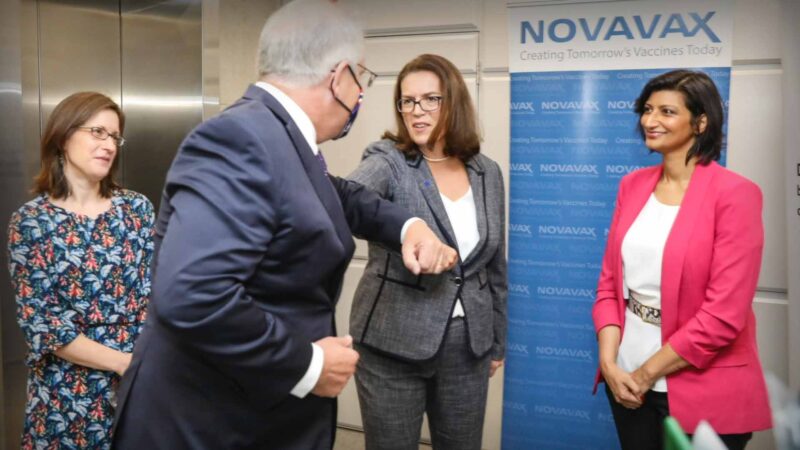ACADEMIC AND INDUSTRY HEALTH ALLIANCE TACKLE TOMORROW’S NATIONAL HEALTH CHALLENGES TODAY Trends report identifies prototyping targets for breakthroughs in digital and hybrid futures
With
Vishaal Kishore,
Professor of Innovation and Public Policy
RMIT University &
Executive Chair, RMIT-Cisco Health Transformation Lab &
Director – Impact, RMIT University, Melbourne
AUSTRALIAN HEALTH JOURNAL SEGMENT
Filmed in Melbourne | June 2025
Vishaal Kishore, a Professor of Innovation and Public Policy at RMIT in Melbourne, serves as the Executive Chair of the RMIT-Cisco Health Transformation Lab and RMIT’s Director of Impact. Led by the RMIT-Cisco Health Transformation Lab, the National Industry Innovation Network (NIIN) Health Alliance combines the best minds, technologists, industry capabilities and academic resources to solve pressing industry and social challenges through technology-driven innovation. The NIIN aims to pool insights and expertise to address national health challenges, marking its first vertical focus on health.
Last year a “Sandbox” was established to serve as a digitally rich collaboration and prototyping studio designed for privacy and security, ready to innovate in aged care and healthcare. The “Sandbox” housed at RMIT-Cisco’s Health Transformation Lab is a digitally-enabled mock care setting where researchers, startups and health system professionals work together on prototypes for the future of health. The Sandbox enables a frictionless pipeline from idea to implementation. The inclusion of autonomous robotics, has created a space where the most futuristic visions for health can be trialled, tested, and translated into practice.
The Health Transformation Lab emphasises user engagement, prioritising the voices of clients and clinicians to design solutions based on their needs rather than assumptions. This practice aims to ensure that any technology developed gains traction in health systems only if it genuinely reflects user requirements.
The NIIN Health Alliance has identified urgent needs in the healthcare system, considering the rapidly evolving technological landscape. As part of their strategic planning, they reviewed nearly 10,000 articles and reports to outline pivotal trends for the future in the publication “Health x Digital Transformation Report 2024-2025”.
In this report, a significant focus has been on the implications of augmented intelligence, remote patient monitoring, digital simulations, adaptable systems, and leveraging advancements in biotechnology, aiming to prepare the healthcare sector for emerging challenges and opportunities in the coming years.
Source: Written from transcript and health transformation lab website by AUDIENCED
You Might also like
-
Family biz succeeds in vaccine approval & distribution
It’s been 10 years since Jenny and Karl Herz started in business. Over the past 10 years they’ve launched Biointelect and Biocelect businesses to help secure approval and distribution for new medicines into Australia.
In this Australian Health Journal interview, Jenny and Karl talk about the journey the husband and wife team took to get the Novavax COVID-19 vaccine (Nuvaxovid) approved and distributed in Australia. The journey didn’t just include talented and diverse skilled staff but also their children working in both organisations.
-
The world of AI avatars in dementia care
Dementia care is one of the critical issues facing the aged care industry. About 500,000 Australians currently live with the brain disorder condition, and this is tipped to rise to 1.1 million in a generation.
How to effectively provide quality care for people living with dementia was a key element of the royal commission into aged care, which found the complex care required was an ongoing challenge for the industry.
-
Imperatives for women diagnosed with ovarian cancer
Professor Clare Scott, a pioneering clinician scientist at the Walter and Eliza Hall Institute of Medical Research in Melbourne, also serves as a medical oncologist at Peter MacCallum Cancer Centre, the Royal Melbourne Hospital, and the Royal Women’s Hospital.
Her comprehensive training in medical oncology has fuelled her specialisation in gynaecological cancer, combining rigorous research with clinical trials to improve patient outcomes. With over a decade of involvement in ANZGOG, Australia’s foremost gynaecologic cancer research organisation, she is deeply committed to advancing research and saving lives.


